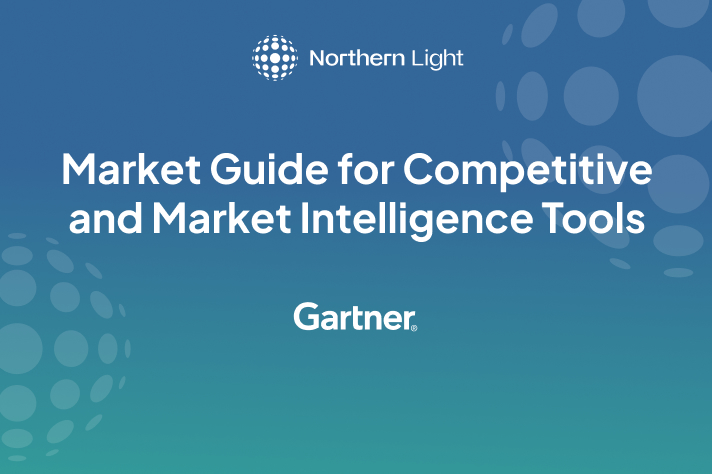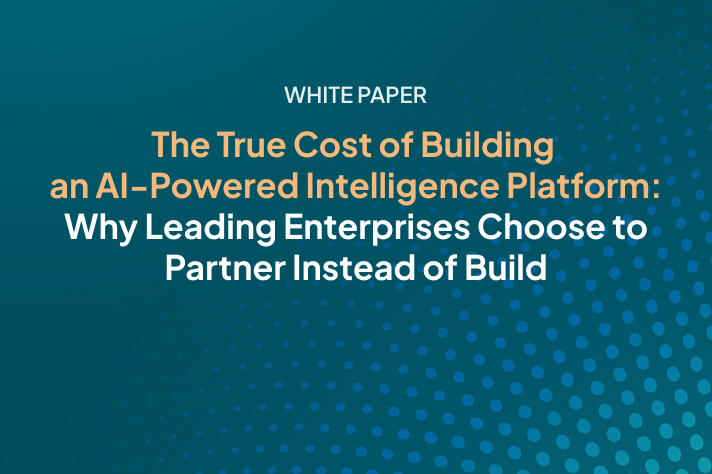We live in the Information Age. This was foreshadowed several decades ago when the fictional Gordon Gekko of Wall Street famously said, “The most valuable commodity I know of is information.” Though avarice got the best of Gekko, his proclivity toward intelligence was not misplaced. In the years since Oliver Stone’s satire of Wall Street warfare caught fire with audiences, insights derived from information have usurped oil’s throne as the world’s most valuable commodity.
Nowadays, every company needs to get on Gekko’s band wagon. Every business must be in the know to thrive in the face of enormous competition. Or as my old professor, Michael Porter, explains in the Harvard Business Review, “As more and more of their time and investment capital is absorbed in information technology and its effects, executives have a growing awareness that the technology can no longer be the exclusive territory of information technology departments. As they see their rivals use information for competitive advantage, these executives recognize the need to become directly involved in the management of the new technology.”
Knowing, however, just how jam-packed the typical exec’s day already is with no shortage of obligations and responsibilities, how can they ever expect to keep up? To answer this question let’s take a trip down Future Lane — Future Lane is a little like Memory Lane only its immersive quality extends to imagining what may be possible in just a few short years (or sooner.)
To begin with, what if modern technological innovations could deliver our information-needing, time-lacking executives competitive, actionable intelligence in an anticipatory manner? Most everyone aware of A.I. will agree the current 3rd Wave of Computing’s defining benefit is the ability of thinking machines to offer us predictions. Or as Theodore Forbath, writing for Fortune, puts it, “We have entered a new age of embedded, intuitive computing in which our homes, cars, stores, farms, and factories have the ability to think, sense, understand, and respond to our needs.”
Intuitive computing in this sense is another way to describe how A.I. can be harnessed to anticipate for us. In the case of the overworked executive this means rather than having to personally — and tediously — search for information on a constant basis — or hire others to perform such tasks, they can rely on a machine learning search-partner. A veritable A.I. ally if you will. This computer compatriot can be counted on to curate and aggregate the content needed for any organization to not stay just competitive but thrive.
Contemplating this scenario morphs Future Lane into more of an Already-Possible-Can-You-Believe-It Lane when we consider how my company, Northern Light, currently provides fingertip-on-the-pulse-type data to execs and companies alike through our software portal, SinglePoint. Conceived of as a tool to bring outside information in, it offers a unique content solution to companies wishing to streamline their search process in ways unimaginable just a few years ago.
Cognizant of so many organizations’ endless need for true insights in many areas, such as research, compliance, marketing, and innovation, we designed a machine-learning based software platform to essentially create a personal search assistant. The key is for the machine to read the content for you and to tell you what it finds that you should know: the important insights – on a platter. We call this the Insights Report. In addition, the system proactively assists by locating new content that matches the user’s interests based on the system learning the preferences of each user by watching what information the user consumes.
In 2018, while attending the AI in Healthcare Conference in Boston, I gave a presentation entitled, “Machine Learning for Search in Market Research and Competitive Intelligence.” In it I suggested machine-based learning will transform online search as we know it, especially for business research. Why? At the very least, both executives and their busy staffs can vastly benefit from no longer needing to manually examine the search result. The machine will do that for them. Moreover, those wishing to stay competitive stand to win enormously from these new technical tools for keeping companies in the know 24/7. After all, if information truly is today’s most valuable commodity, it pays to know what you don’t know — but it especially pays to know what you don’t know you don’t know. Let the machine read the content for you and tell you what you need to know that you don’t know you don’t know.






